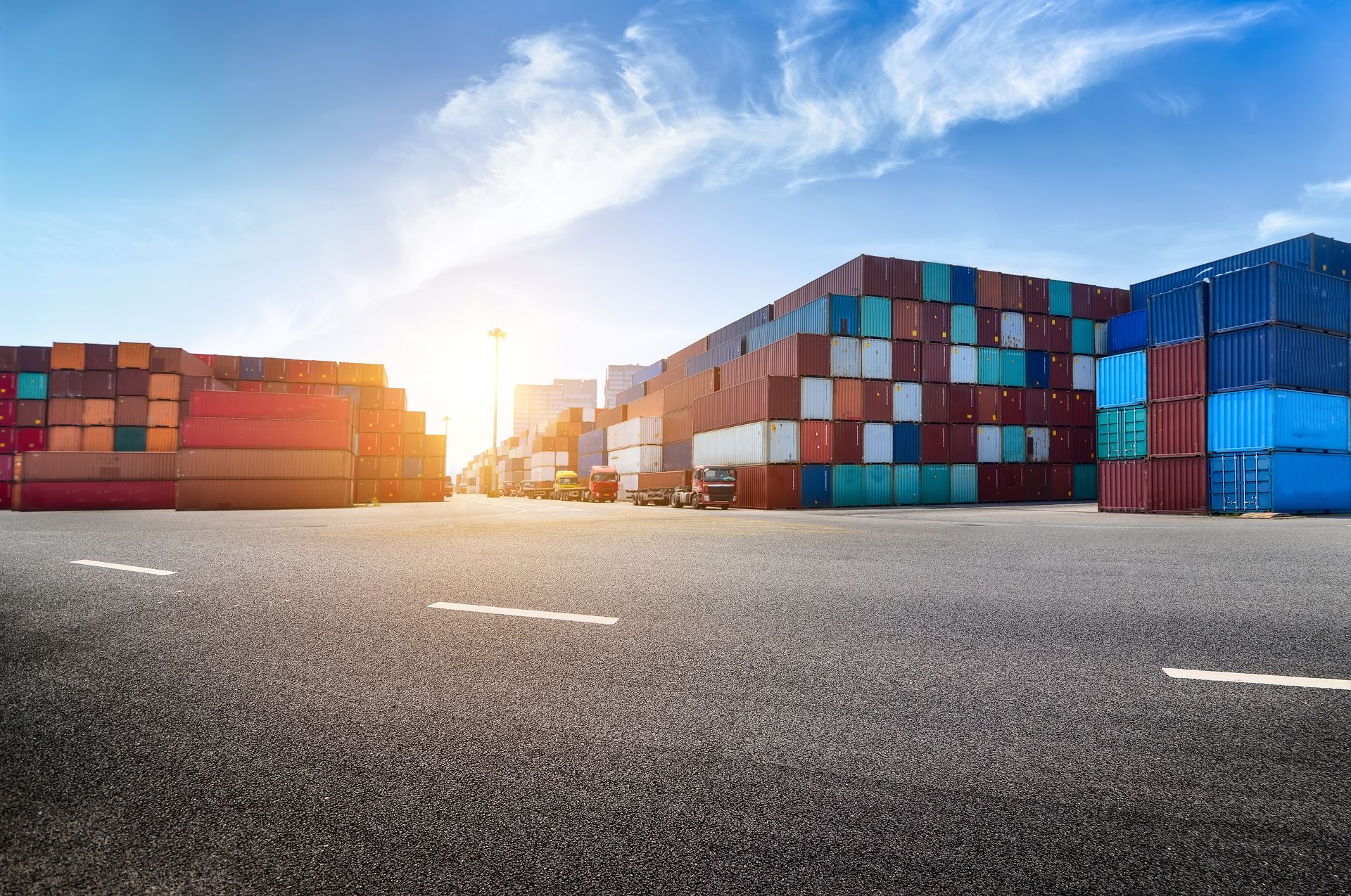The Logistics industry is undergoing a technological revolution, where efficiency, speed, and adaptability are crucial for survival and growth. In this evolving landscape, Enterprise Resource Planning (ERP) systems have become a guiding principle for many businesses, helping manage core processes from finance and warehousing to operations. However, with the explosion of data and increasingly complex market demands, traditional ERP systems are revealing their limitations.
Integrating AI into ERP systems is more than just a technological upgrade; it's a leap forward that transforms raw data into valuable insights, automates complex tasks, and predicts future trends. For freight forwarders and logistics companies, this translates to optimized shipping routes, smarter warehouse management, accurate demand forecasting, and significantly improved customer experiences
This article will delve into how AI can synergize with ERP to create a more agile, intelligent, and efficient transport and supply chain management system than ever before.
1. The rise of AI and its application potential in logistics

In recent years, Artificial Intelligence (AI) has transitioned from a distant concept to a core component in the digital transformation of many industries, especially logistics. From tech startups to global freight forwarding corporations, AI is now viewed as the "intelligent brain" that helps process massive amounts of data and supports fast, accurate decision-making.
Optimize routes and delivery times
AI can analyze real-time data on weather, traffic conditions, transportation capacity, and historical data to suggest optimal routes, shortening transit times and reducing fuel costs.
Demand forecasting and efficient capacity management
With machine learning, a Freight Management System (FMS) can learn from past data to forecast future shipping volumes. This enables businesses to allocate resources effectively, avoiding under- or over-utilization of capacity.
Automate operational processes
Repetitive tasks such as transport planning, document generation, sending ETA (Estimated Time of Arrival) notifications, or updating shipment statuses can be automated by AI, saving time and minimizing human error.
Real-time shipment tracking and risk management
AI, combined with IoT and GPS, enables real-time tracking of location and cargo conditions (temperature, humidity, etc.). If anomalies are detected, the system can send early warnings for timely intervention.
Performance analysis & improvement recommendations
AI within an FMS can generate intuitive dashboards to analyze delivery performance, costs by route and supplier, and propose optimization actions based on actual data.
Personalize customer service
Integrating AI into an FMS allows the system to automatically answer customer inquiries, predict delivery times, send smart notifications, and enhance the overall user experience.
2. The Benefits of AI for the Logistics and Freight Forwarding Industry

Optimizing Routes and Transportation Journeys: AI analyzes traffic data, weather conditions, distance, and fuel costs to propose the most optimal transportation routes. This not only shortens delivery times but also reduces transportation costs, simultaneously enhancing accuracy in commitments to customers.
Automating Operational Processes: Instead of time-consuming manual tasks such as creating bookings, issuing documents, or sending notifications, AI can automate these steps. This helps minimize errors, accelerate order processing, and boost the productivity of the operational team.
Data Analysis and Decision Support: AI aggregates and analyzes large volumes of data from orders, routes, drivers, costs, and more, generating detailed reports and optimal recommendations. This empowers managers to make precise and timely decisions, significantly improving operational efficiency.
Demand Forecasting and Proactive Planning: AI utilizes historical data and machine learning algorithms to forecast transportation demand by season, region, or cargo type. This enables businesses to proactively plan the allocation of personnel, vehicles, and warehouse space effectively, preventing surpluses or shortages.
Real-time Shipment Tracking and Rapid Incident Resolution: AI, combined with IoT and GPS technology, continuously monitors the location, status, and transportation conditions of goods. Upon detecting incidents such as delays or changes in storage conditions, the system immediately issues alerts, allowing businesses to address issues promptly and minimize damages.
Enhancing Customer Experience: AI facilitates automated notifications regarding order status and estimated delivery times, and can answer common queries via chatbots. This ensures customers are always updated with timely information, fostering trust and satisfaction throughout the transportation process.
3. Challenges of AI Integration in Logistics and Freight Forwarding

AI presents significant opportunities to enhance efficiency and foster innovation within the Logistics and Freight Forwarding sectors. However, its successful implementation is accompanied by several key challenges that require systematic identification and resolution.
Lack of quality and harmonized data
Many logistics businesses still rely on manual processes, leading to fragmented data and a lack of centralized management systems. Data often remains unstandardized. This poses a significant hurdle for AI adoption, as AI systems necessitate clean, complete, and consistent data for effective learning and analysis.
High investment costs & difficult-to-measure mmediate ROI
AI implementation demands substantial investment in software, hardware, personnel, and training. This creates financial pressure, particularly for small and medium-sized enterprises. The return on investment (ROI) often takes time to materialize, causing businesses to hesitate in their commitment.
Resistance to cultural change and workforce skill gaps
Changes in processes and technology can lead to employee discomfort, fear of job displacement, or an inability to master new technologies. Furthermore, corporate cultures may not be ready to embrace data-driven decision-making over traditional experience-based approaches.
Scarcity of AI and technology expertise
The logistics industry often lacks dedicated IT teams with deep AI expertise. This can complicate the deployment, customization, and ongoing operation of AI systems.
Data security and information confidentiality concerns
Operational and customer data are critical assets. Improper storage and processing can lead to significant risks of data loss or breaches.
4. Solutions for AI Integration in Logistics and Freight Forwarding

The successful integration of Artificial Intelligence (AI) within the Logistics and Freight Forwarding sectors necessitates comprehensive solutions that extend beyond mere technological implementation. These include robust strategies for data management, human capital development, and fostering a supportive corporate culture. Below are key solutions to ensure successful AI deployment for businesses:
Standardize and digitize data
Businesses must first prioritize the digitization of manual operational processes and the standardization of data across their entire system.
- Establish a centralized, synchronized, and easily accessible data management system to ensure clean, accurate, and well-structured data.
- Continuously update and cleanse data to ensure optimal performance of AI models.
Phased implementation, starting with priority modules
Begin with AI applications that are straightforward to deploy and offer rapid, measurable results, such as route optimization, demand forecasting, and customer support chatbots.
- Subsequently, gradually expand to more complex modules like advanced data analytics and complex process automation.
- Evaluate the effectiveness of each phase to adapt the strategy accordingly.
Collaborate with reputable technology partners
Select AI-integrated FMS (Freight Management System) software providers with proven experience in the Logistics and Freight Forwarding industry to ensure suitable solutions and in-depth technical support.
- Leverage cloud AI platforms to minimize infrastructure investment costs and enhance deployment flexibility.
- Consider partnering with data specialists and digital transformation consultants to develop a strategic and methodical implementation plan.
Workforce training and development
Train employees on AI technology utilization, new processes, and how to leverage data for informed decision-making.
- Promote a "data-driven decision-making" culture within the organization to foster consensus and drive successful digital transformation.
- Attract or develop a team of data and AI experts to operate and customize systems according to practical needs.
Ensure data security and risk management
Implement stringent security policies, control data access, and comply with personal data protection regulations.
- Utilize encryption, monitoring, and intrusion detection technologies to protect systems from cyber threats.
- Regularly assess and upgrade security measures to ensure data safety throughout operations.
Establish continuous feedback and improvement ystems
Set up mechanisms to collect feedback from internal users and customers to evaluate the effectiveness of AI applications.
- Analyze operational data and AI performance to identify bottlenecks, issues, and drive continuous improvement.
- Ensure AI systems are updated and developed in line with business needs and new technological trends.
5. Conclusion:
Integrating Artificial Intelligence (AI) into Enterprise Resource Planning (ERP) systems is no longer optional; it's rapidly becoming an undeniable strategic trend for Freight Forwarder and Logistics businesses. From optimizing operational processes and enhancing data-driven decision-making to improving customer experience and reducing costs, AI is opening new doors for sustainable growth and strengthening competitive advantage.
While initial challenges related to investment costs, data quality, and workflow changes will exist, the long-term benefits of AI are immense. Pioneering companies that proactively embrace and systematically implement AI will not only boost operational efficiency but also position themselves as leaders in the digital era of the Logistics industry. Contact us today for the latest technology updates and expert consultation.